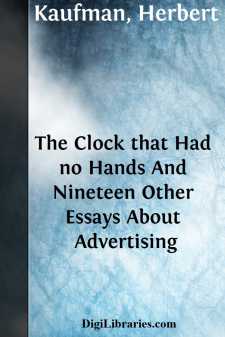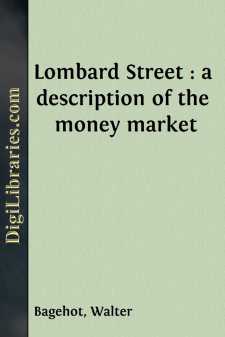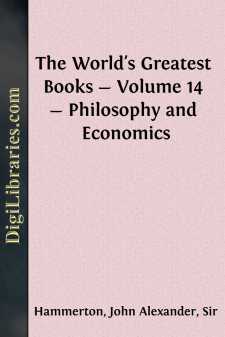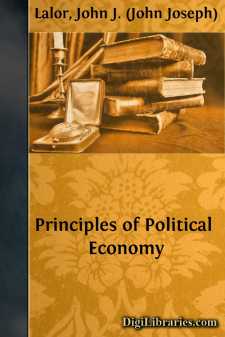Business & Economics
Business & Economics Books
Sort by:
by:
Herbert Kaufman
Newspaper advertising is to business, what hands are to a clock. It is a direct and certain means of letting the public know what you are doing. In these days of intense and vigilant commercial contest, a dealer who does not advertise is like a clock that has no hands. He has no way of recording his movements. He can no more expect a twentieth century success with nineteenth century methods, than he...
more...
by:
Frederic Bastiat
Capital and Interest. My object in this treatise is to examine into the real nature of the Interest of Capital, for the purpose of proving that it is lawful, and explaining why it should be perpetual. This may appear singular, and yet, I confess, I am more afraid of being too plain than too obscure. I am afraid I may weary the reader by a series of mere truisms. But it is no easy matter to avoid this...
more...
I was born near Ottawa, Illinois, January 6th, 1852, of Scotch-Irish descent. My great-great-grandfather Johnston was a Presbyterian clergyman, who graduated from the University of Edinburg, Scotland. My mother's name was Finch. The family originally came from New England and were typical Yankees as far as I have been able to trace them. My father, whose full name I bear, died six months previous...
more...
by:
Walter Bagehot
CHAPTER I. Introductory. I venture to call this Essay 'Lombard Street,' and not the 'Money Market,' or any such phrase, because I wish to deal, and to show that I mean to deal, with concrete realities. A notion prevails that the Money Market is something so impalpable that it can only be spoken of in very abstract words, and that therefore books on it must always be exceedingly...
more...
by:
DadaBhagwan
Geld hat in unserem Leben eine eigene Bedeutung. Die Welt betrachtet Geld und Reichtum als eines der wichtigsten Dinge im Leben. Die Menschen haben mehr Liebe zum Geld, weil es in allem, was sie tun, benötigt wird. Deshalb gibt es überall auf der Welt einen Kampf um mehr Geld, durch ethische oder unethische Mittel. Die Menschen fühlen sich durch die ungleiche Verteilung von Geld und Reichtum besorgt....
more...
For a special purpose, I have had occasion to examine with care the comments upon American life and institutions made by foreign critics during the period that extends from the later part of the eighteenth century up to the present time. If one puts aside the frivolous and ill-tempered studies and considers alone the fairer and more competent observers, the least pleasant of all the criticisms is that...
more...
HEGEL The Philosophy of History Georg Wilhelm Friedrich Hegel was born on August 27, 1770, at Stuttgart, the capital of Würtemburg, in which state his father occupied a humble position in government service. He was educated at Tübingen for the ministry, and while there was, in private, a diligent student of Kant and Rousseau. In 1805 he was Professor Extraordinarius at the University of Jena, and in...
more...
by:
Samuel Smiles
CHAPTER I. INDUSTRY. "Not what I have, but what I do, is my kingdom."—Carlyle. "Productive industry is the only capital which enriches a people, and spreads national prosperity and well-being. In all labour there is profit, says Solomon. What is the science of Political Economy, but a dull sermon on this text?"—Samuel Laing. "God provides the good things of the world to serve...
more...
It is no foolish desire to make a vain display of citations, that induces us, at the beginning of this essay, intended to point out the results of the application of a new method to the study of Political Economy, to invoke the authority of a poet and moralist, of a jurisconsult and of a philosopher. The writer finds in the words just quoted the loftiest expression of the thought which dictates these...
more...
MORALS IN TRADE AND COMMERCE The most beautiful thing about youth is its power and eagerness to make ideals, and he is unfortunate who goes out into the world without some picture of services to be rendered, or of a goal to be attained. There are very few of us who, at some time or another, have not cherished these ideals, perhaps secretly and half ashamed as though to us alone had come an inspiration...
more...











